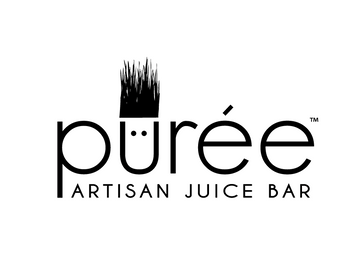HPP - What You Need to Know
The FDA forbids raw juice to be sold wholesale and distributed through retail channels. After being in the business for 12 years, I understand and agree with this law. Raw juice needs to be managed carefully, is extremely temperature sensitive, and requires education, which gets diffused every time it changes hands. This can lead to real health risks if it is not handled properly. As a result, real juice needs to be sold directly from the manufacturer to the consumer. However, larger companies think they have found the holy grail with HPP as a way for them to cash in on the very real benefits of cold-pressed juice while increasing distribution, and destroying the juice in the process.
HPP, an acronym for high-pressure pasteurization has been around since the 1920s. It has completely changed the way the US processes meats, dips, and packaged foods. In the past several years, HPP has entered the world of juices, specifically, cold-pressed juices. And while companies try to market it as a healthy and better alternative to pasteurization, the product you get will never be fresh juice.

What is the process of HPP?
HPP is a three-step process which extends the shelf life of juices, kills 99.999% of the microorganisms in the juice. Companies market it as beneficial since it kills pathogens. But all the good stuff in your juice is destroyed along with the “dangerous” natural components.
Here’s how the HPP process goes step by step:
- Raw juice is made on a juice press and then bottled into plastic bottles. The bottles have to be a soft, permeable plastic. Remember, HPP is not the process of making juice, but a secondary processing step.
- Plastic bottles are loaded into a gigantic chamber filled with water, and then the High Pressure Process begins, pressurizing the bottles up to 85,000 PSI. The pressure goes through the bottle into the juice, so plastic leaching is inevitable.
- Depending on the settings, companies maintain that pressure between one and several minutes, and then it slowly de-pressurizes.
Once the bottles come out the other end, they contain no living microbial content. Their shelf life is expanded to 30-45 days, instead of just 3-5 days (normal for raw juice). No living microbial content means that there are also no beneficial enzymes, phytonutrients or vitamins.

Why should you care?
High-Pressure Processing has breathed fresh life into the US juice market. There is no denying that. Just take a look at the rows and rows of juice at your local grocery store (and note the soft, malleable bottles they are in). But if you want to know what are you drinking, the laws make it very difficult for you to do so. The FDA allows companies to label products as “raw”, even though they’ve gone through HPP processing. What they forbid is putting the label “fresh”. According to FDA regulations, you cannot call it “fresh” if you process the juice with HPP. But for “raw”, however, there are no specific regulations.
Playing a game of semantics, companies are marketing HPP as a trendy alternative to pasteurization. The bottom line, however, is that HPP is pasteurization! Pasteurized juice is de-natured, has zero nutrient density and is not the same as a fresh, whole, and unprocessed juice. Recipes that undergo HPP have to be adjusted because the juice does not taste the same after processing. Simply further evidence that the nature of the juice is changed - nutrients, color, and taste are sacrificed for shelf life so companies can distribute their product and make more money.
Lawsuits and HPP
Because companies are trying to market HPP as a “raw” product, there have been a rise of lawsuits in the past several years. Plaintiffs’ attorneys are starting to take issue with the way HPP treated products are being marketed to consumers. In the past several years, companies like Suja Life, Forager Project, and BluePrint Juice have been subject to lawsuits due to their way of marketing juices.

Three Myths to Debunk
Myth 1: If the juice isn’t labled with HPP, then it hasn’t been processed with HPP
As mentioned previously, if the juice is not labeled HPP, that doesn’t mean the company didn’t high pressure their juice. There is no way of knowing specifically how they pasteurize their juice. Manufacturers are NOT required by the FDA to tell you they utilize HPP. However, if the shelf life is over 3-5 days, most likely 30-50 days, then it definitely has been pasteurized and processed in some way.
Myth 2: HPP Doesn’t affect the nutritional content
Some studies show that HPP has just a minor effect on nutrient content, claiming they retain between 87% and 100% of the nutrients. But that is simply not true. HPP kills potential pathogens, but also phytonutrients, enzymes, vitamins, and everything in your juice. Think of it as chemotherapy, it kills the bad, but also the good. The pressure doesn’t know the difference between a pathogen and a nutrient, it just pressurizes the whole bottle of juice
Myth 3: Juice labeled as raw must be fresh
In the raw food world, heat is the determining factor. Some advocate for 105F as the maximum, others say 118F. And since HPP does not utilize heat in the process, they use the term “raw”. The FDA definitely allows that. Only the shelf life and purchasing direct from a juice bar, or grocery that makes their own juice, will be fresh. Remember, truly raw fresh juice is forbidden to be sold wholesale.
Benefits of drinking fresh juice
Companies argue that with expanding the shelf life of their products, they can be used for longer, instead of going to waste. When the shelf life is more than 3 or 5 days, that product is pasteurized. It is not raw, and certainly not as healthy as raw and fresh juice. With that in mind, here is why you need to be choose wisely with HPP juices and always go for the truly raw, natural and organic option.
- Organic foods and fresh juices contain more antioxidants, and are free from chemicals and pesticides
- There are no additives in fresh, cold-pressed juice
- Organic produce helps the environment
- The No.1 reason for drinking fresh juice is fresh juices are higher in nutrients, enzymes and vitamins, none of which have been destroyed during processing
- Fresh and organic juice contains no genetically modified organisms
- Plants are powerful healing agents, and cold-pressed juice concentrates this healing power into a delicious juice
- Consuming fresh juice helps with digestion, as our body can easily absorb the nutrients
- Your body saves energy, as it does not have to spend energy to convert fibrous produce into liquids for absorption
- Fresh juice contains glutathione, a protein composed of amino acids that helps your body detoxify



